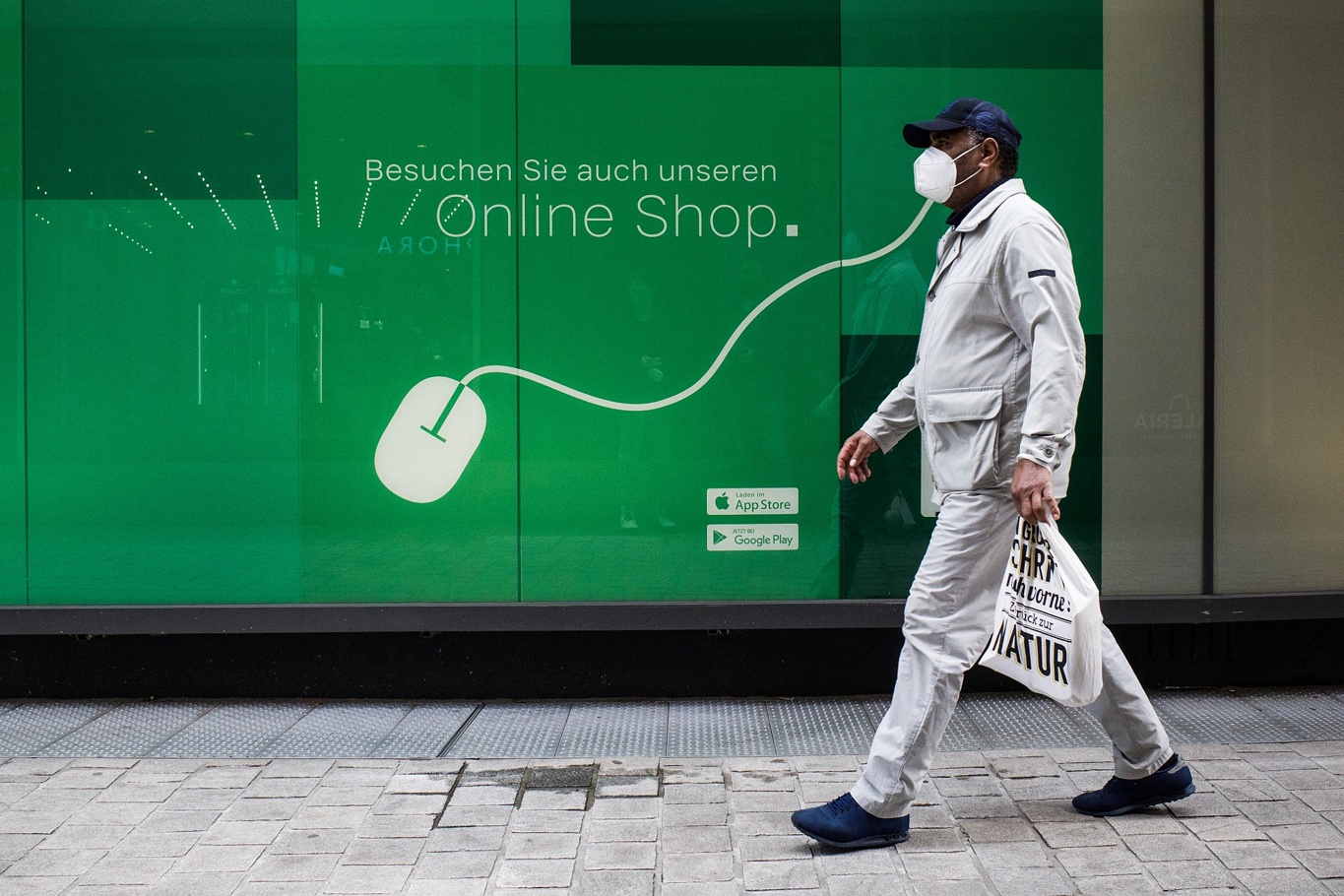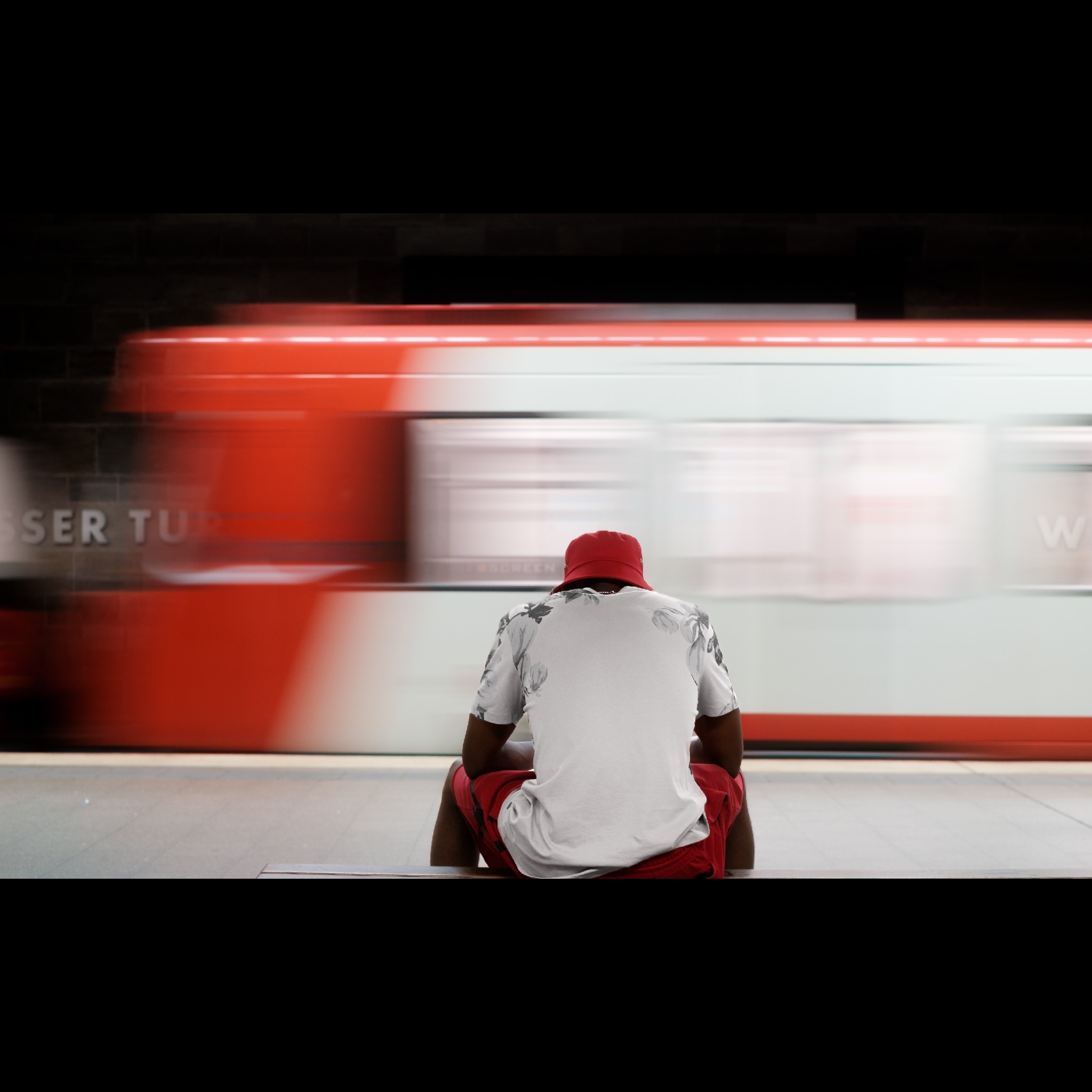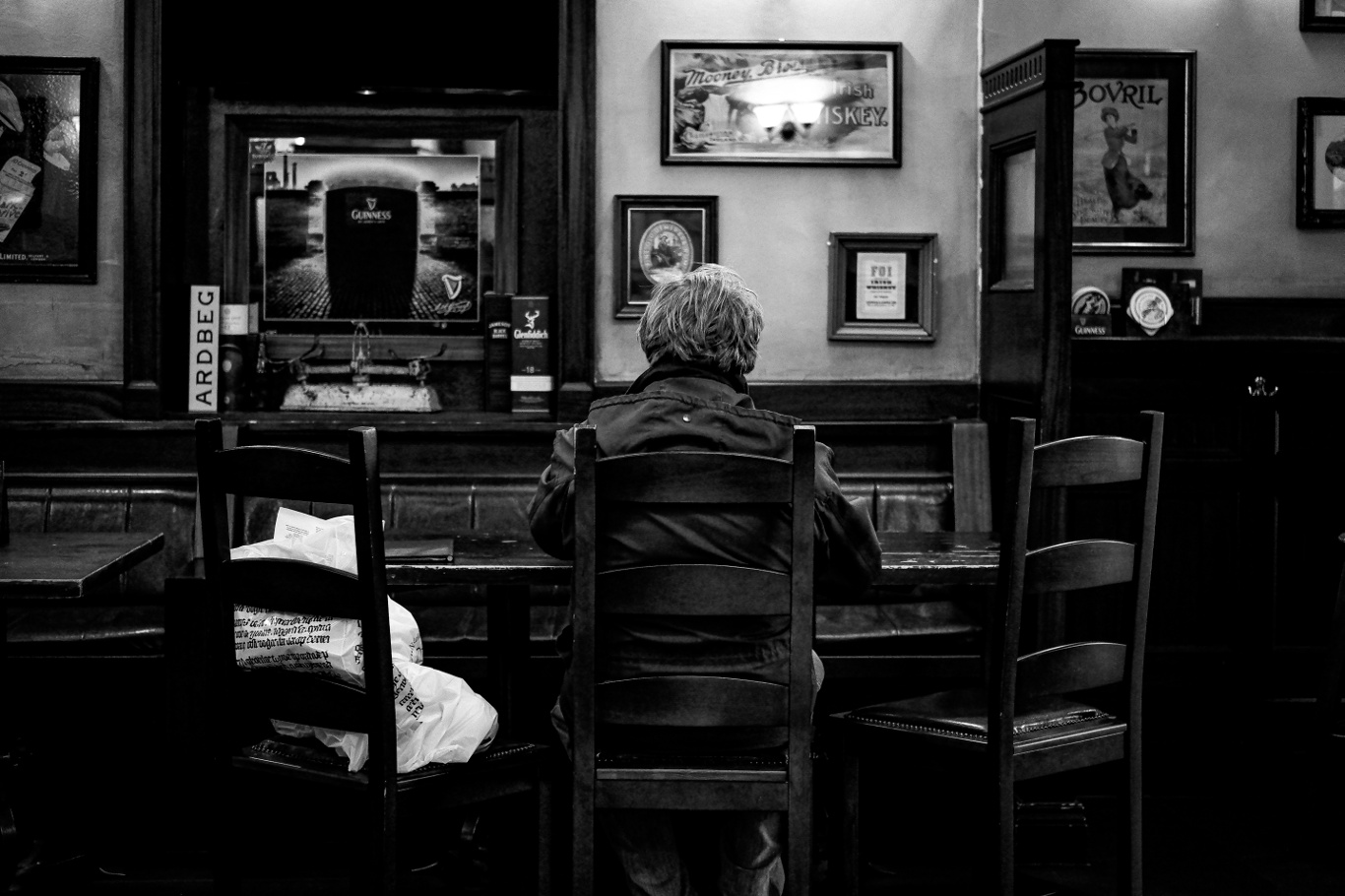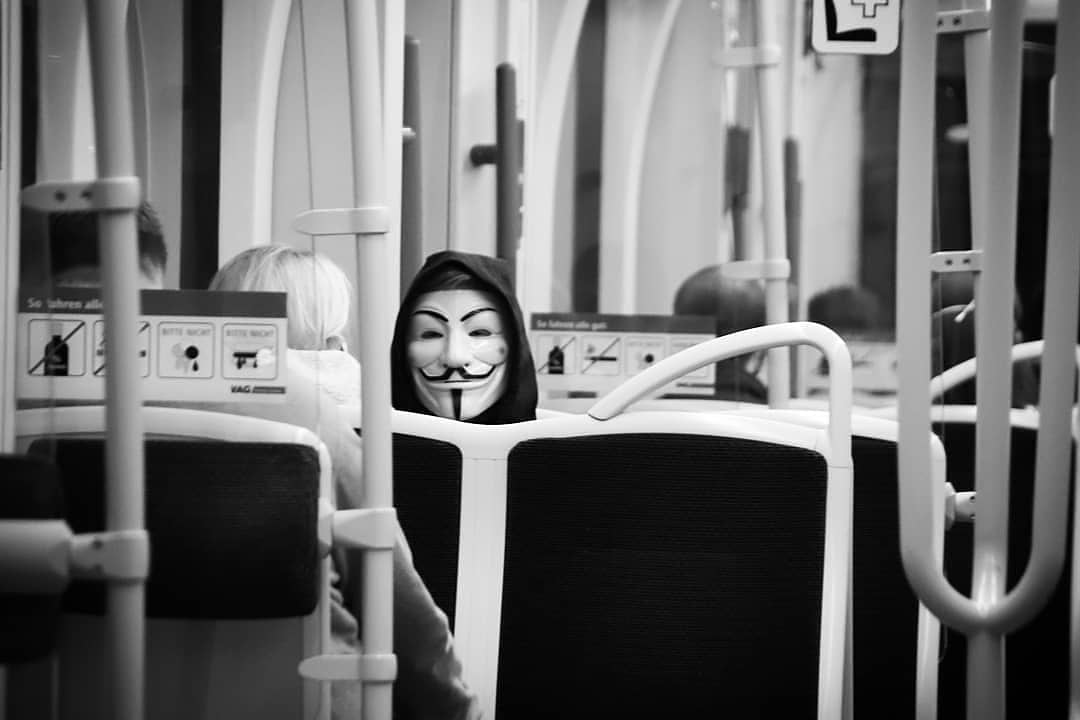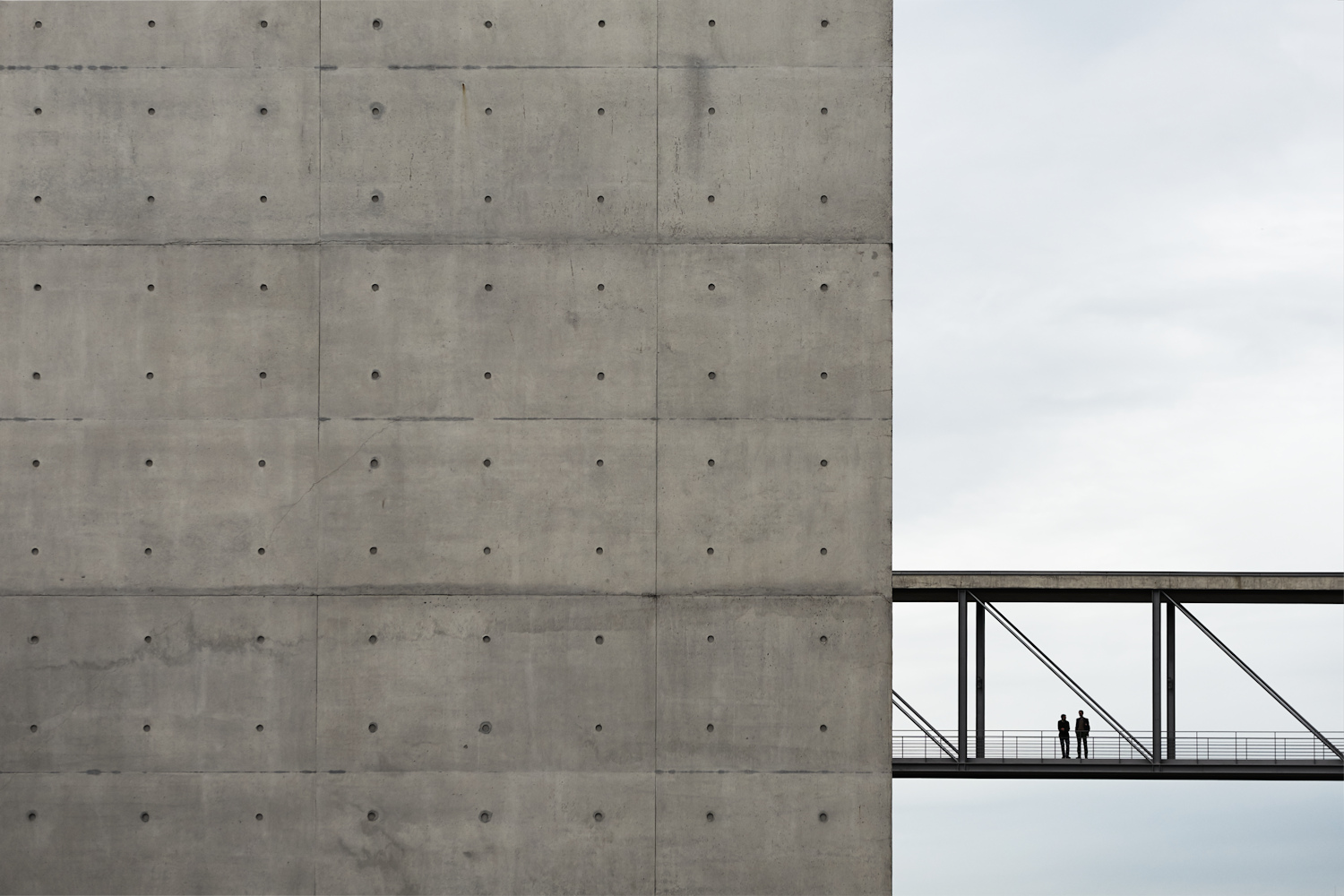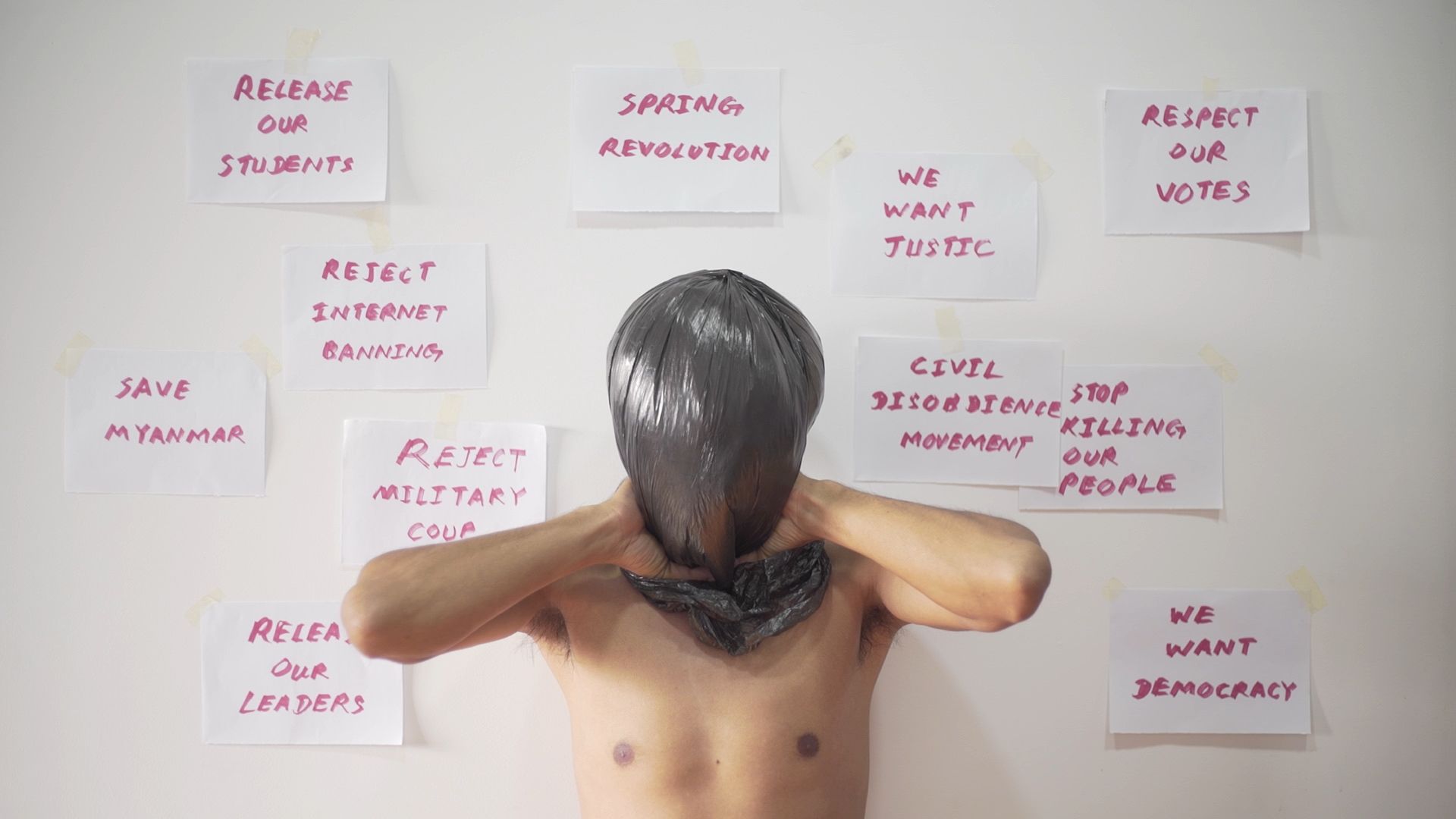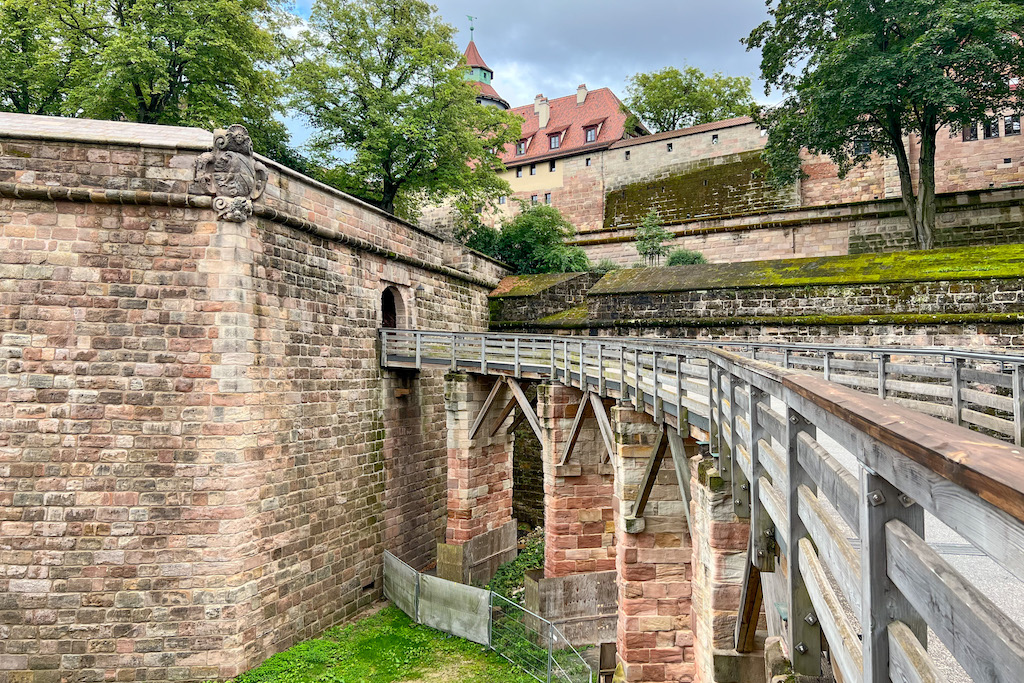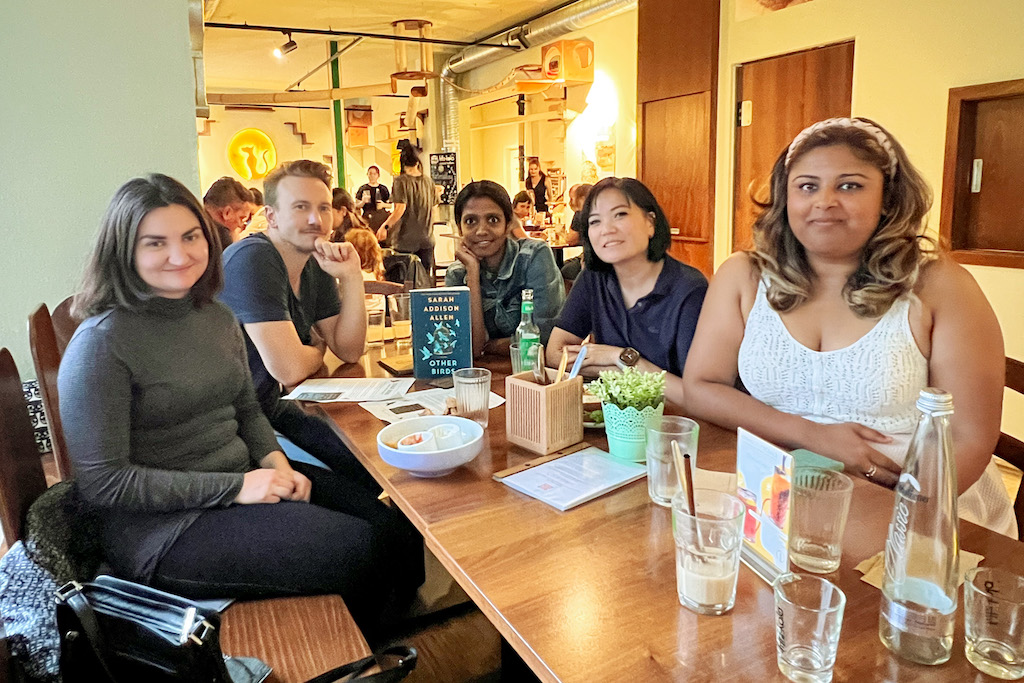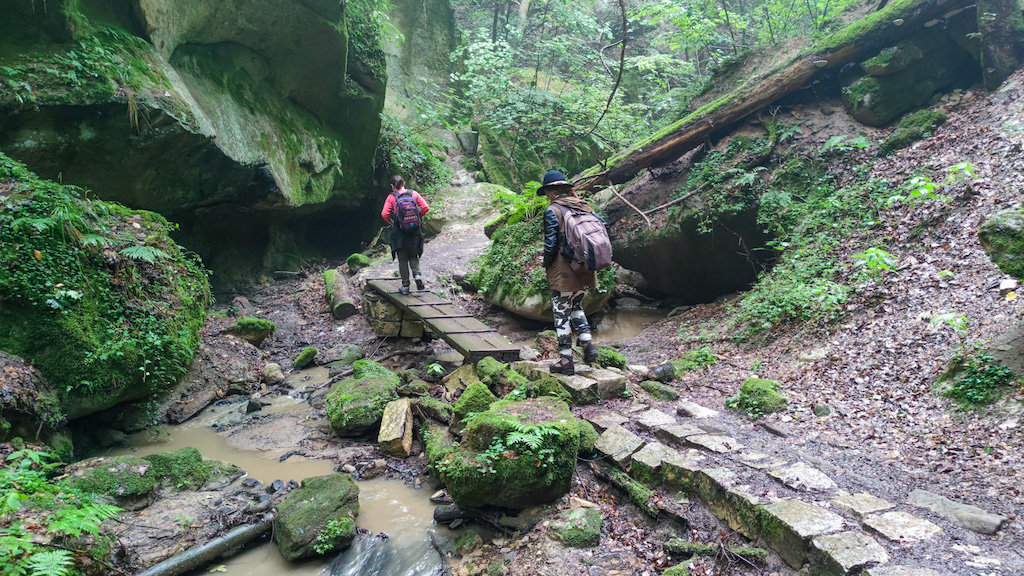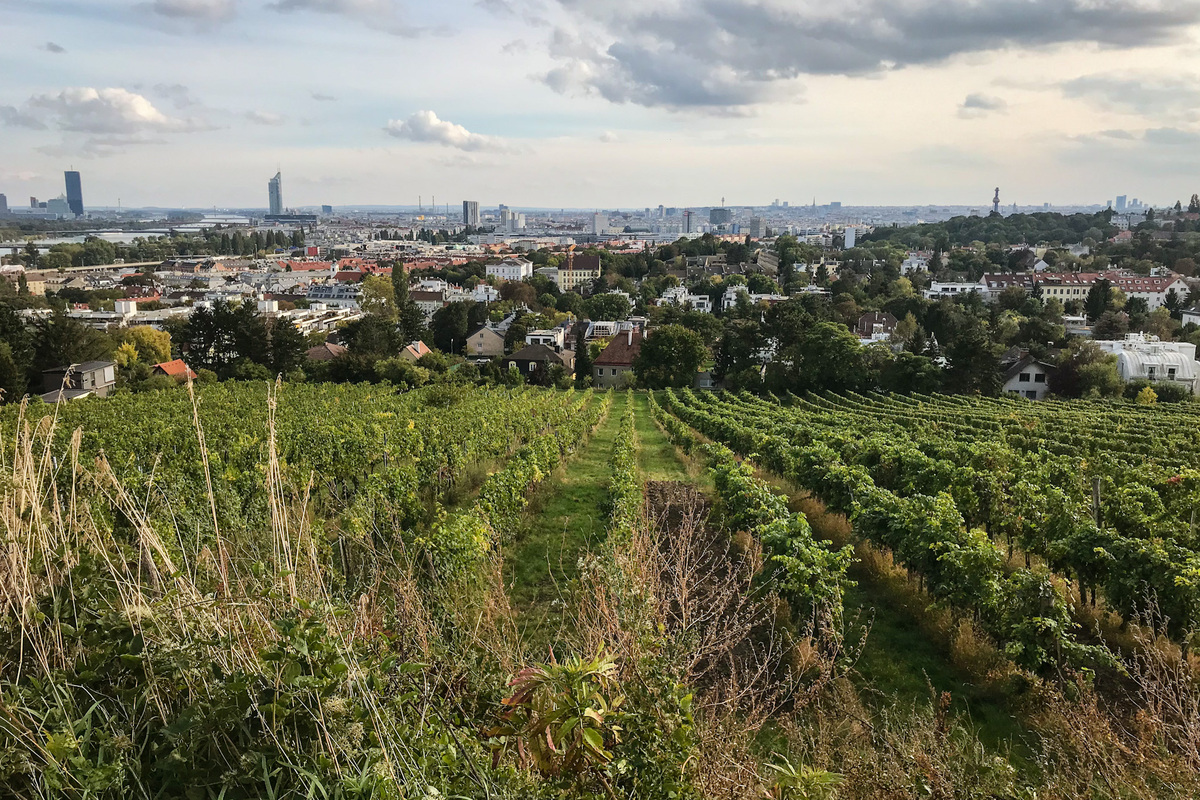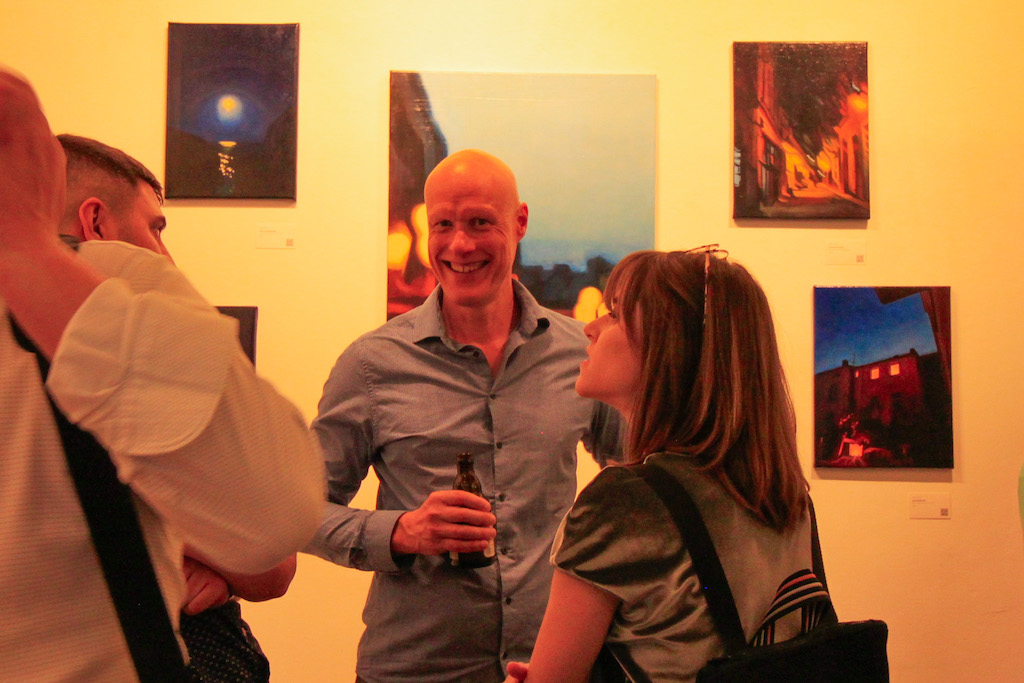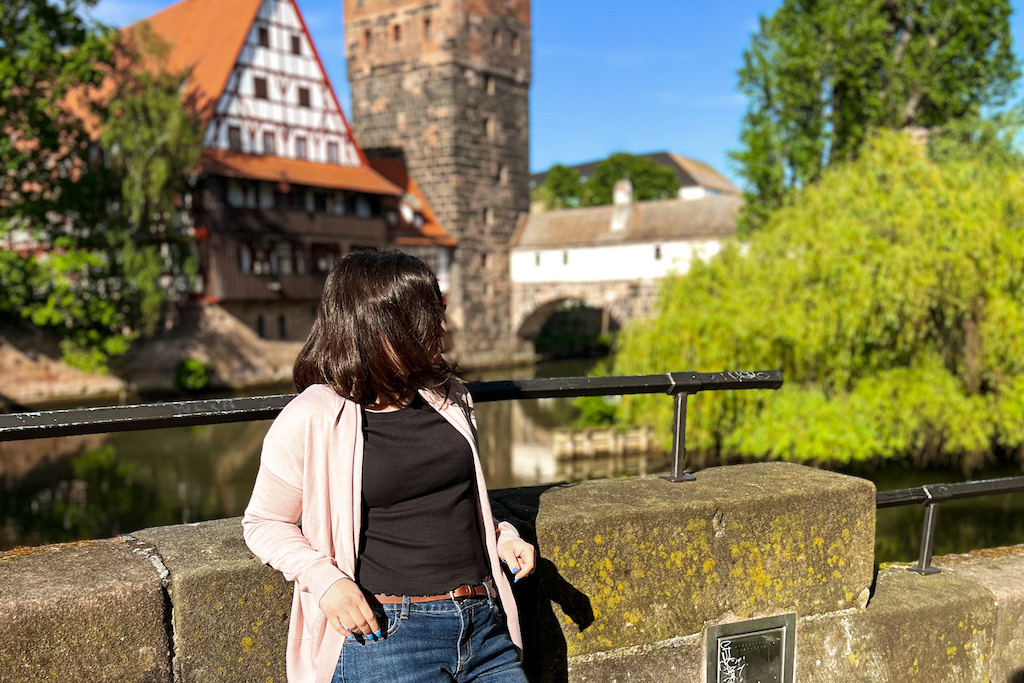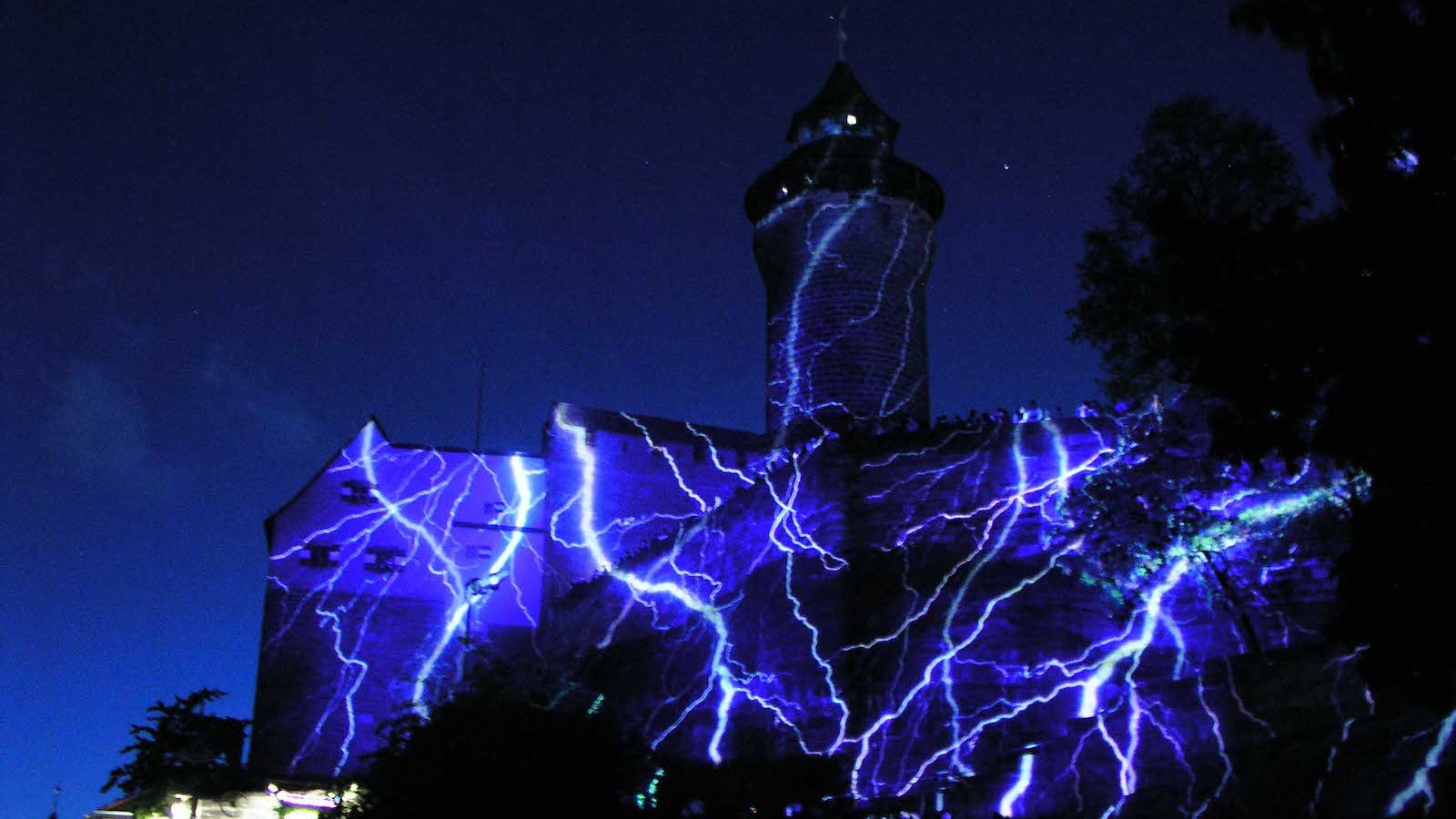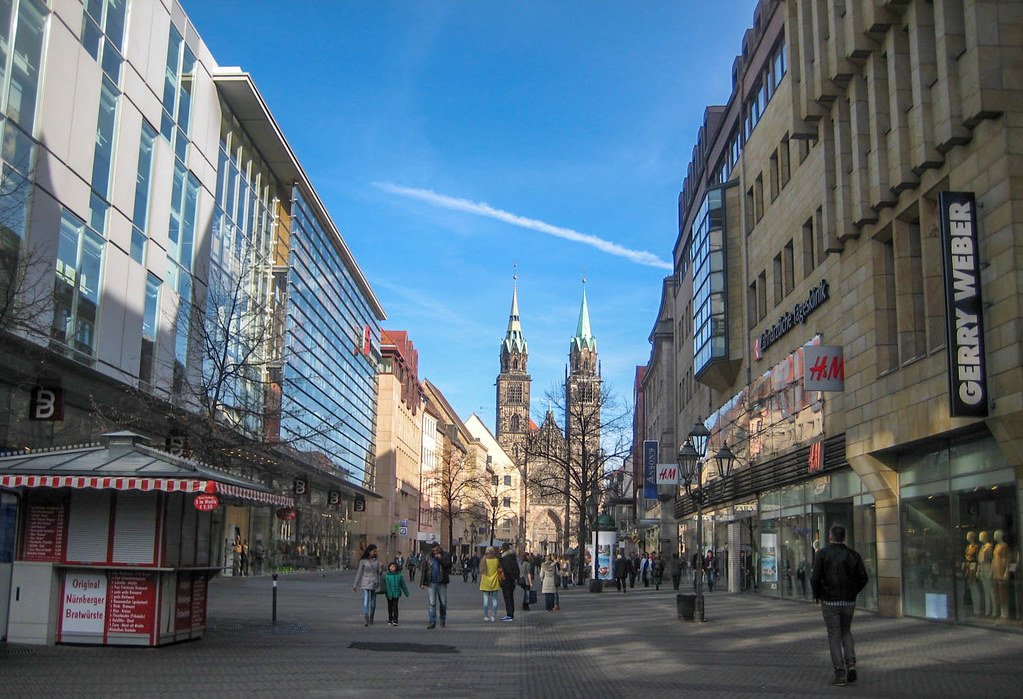Who are the Nuremberg Unposed Collective? What exactly is street photography? Is it legal? On behalf of the group, Samuel Ioannidis generously provided us with information.
The Collective, an association of street photographers, who, in their words, “go beyond the illusory world of social media in real life,” bring their enthusiasm for street photography to the world and increase awareness for this artform. Their primary aim is to be a contact point for interested people, serving as an interface and networking with like-minded people from Germany and beyond.
Currently consisting of eight photographers, they meet regularly, exchanging ideas and planning new projects or arranging photographic excursions. Samuel says the most important thing is to have fun. When the pandemic allows, they would like to plan public street walks, photographing together with friends and other like-minded people and networking further.
Besides artistic and documentary approaches, they would also like to use their photography to expose social grievances, “getting involved in social issues.” In this context, one of their current and heartfelt projects is “Show Your Colours,” combining (street) portraits with personal stories and experiences. “We want to raise awareness about everyday racism and reveal the still enormous dimensions of this problem.”
Actually, this article was meant to be published to coincide with an exhibition of the Nuremberg Unposed Collective at the beginning of December 2021. Due to Corona restrictions, the exhibition and vernissage had to be cancelled. Hopefully, it will go ahead in the spring of 2022. More information will be announced by the collective on their social media channels.
What is Street Photography?
As a Collective we consider it so, “For us, there is no fixed definition, no one right or wrong Street Photography. It’s about capturing those fleeting moments, the aesthetics and the humour of everyday life. But also about bringing to light situations that make you think. Books fill entire libraries, and many clever minds have thought endlessly about this question and quite a few would like to make their views known. Amongst us, you’ll find some very diverse approaches but in the end, everyone has to find their own interpretation.
What we have in common is our basic attitude, the idea that we have dedicated ourselves to. Our priority is always to treat our “subjects” with respect. We will never show people in distress or in compromising situations. No one should be put on display – the first question is always, how would I react to such a picture of me?”
Is street photography legal?
Another member of the Collective, Marc says, “Again and again, we are asked if it is legally allowed. We are not legal experts who can make a final assessment, and if unsure, people may want to consult a lawyer. Every country has its own laws. Here in Germany, it’s still a bit of a grey area.
If in doubt, a photo can always be deleted directly on the camera, removed from the Instagram account or taken down from the exhibition if someone has recognised themselves and feels bothered by it. Of course, this should be done without hesitation.
However, such cases rarely occur, even Thomas Leuthard (a well-known street photographer from Switzerland) said at a workshop that despite his international fame, only once or twice did someone recognise themselves in his photos resulting in a confrontation.”
Wikipedia writes the following, “Germany protects the right to take photos in public, but also recognises a “right to one’s own image.” That means that even though pictures can often be taken without someone’s consent, they must not be published without the permission of the person in the picture. The law also specifically protects against defamation.”
There have been numerous court decisions where the plaintiff was proven right if the defendant used the photos for commercial purposes without asking for permission.
On the other hand, if a picture is considered art, the courts will consider the photographer’s freedom of artistic expression, meaning that “artful” street photography can still be legally published in certain cases.
Marc says, “Even as hobby photographers, since we consider our photography to be art, we should be in the clear and will continue to pursue our passion with our private Instagram profiles and small local photo exhibitions in this artistic sense.”
Recent projects
This year, despite the pandemic, there were two highlights and some smaller local projects. Certainly, one highlight for Nuremberg Unposed was a meeting they co-organised of all street photo collectives from Germany (and Switzerland) on 10th July in Frankfurt am Main. About 50 people attended, the day’s climax being a guerrilla exhibition on the pillar of a bridge crossing the river Main. There were many interesting conversations with passersby who were allowed to take the photos home. Nuremberg Unposed had already staged a similar guerrilla exhibition on a smaller scale in Nuremberg.
Nuremberg Unposed Collective was also actively involved in the second German Street Photography Festival, which took place during the spectacular Photopia Trade Fair in Hamburg at the end of September 2021. Many interesting lectures, including two from Nuremberg Unposed, were streamed live to the internet. The Collective also participated in a podcast recording (www.gatesieben.de).
On 6th November, they celebrated the first anniversary of an exhibition at Kater Murr in Nuremberg with a finissage. Before which, they organised a public streetwalk, to which friends and interested people could join.
Find out more about the Nuremberg Unposed Collective here: www.nürnbergunposed.de
https://www.instagram.com/nuernberg_unposed_collective/


